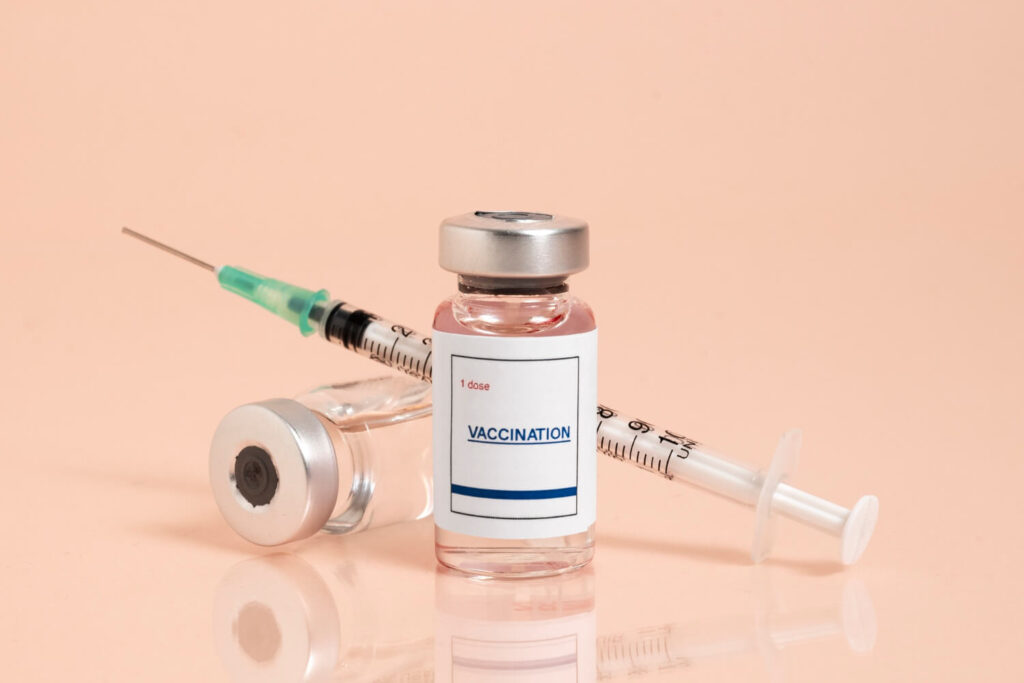In today’s world, where medical advancements have transformed our lives, one preventive measure stands out for its unparalleled impact, adult and children vaccination. This powerful tool has revolutionized the medical field, helping individuals to withstand the risks of life-threatening conditions such as hepatitis B. So, if you are looking for a medication for this liver inflammation disease, you might want to check out the hepatitis b vaccination treatment.
In this article, we’ll be covering how it can be a suitable disease control instrument for preventing widespread disease. Let’s begin!
Understanding Hepatitis B: An Overview
What is Hepatitis B?
Hepatitis B is a viral infection that primarily affects the liver. It is caused by the Hepatitis B virus (HBV), which is transmitted through infected blood, bodily fluids, or from an infected mother to her unborn child. The virus attacks the liver cells and can lead to chronic liver disease, including liver cirrhosis and liver cancer.
This type of hepatitis is not just a medical condition; it is a global health concern that demands attention. The impact of this disease goes beyond individual cases, affecting communities, healthcare systems, and economies. Understanding the global impact of Hepatitis B is crucial in comprehending the significance of vaccination and implementing effective prevention strategies.
The Science Behind Hepatitis B Vaccination

How Does the Hepatitis B Vaccine Work?
The first hepatitis B vaccine works by stimulating the body’s immune response to the virus. It contains a small portion of the HBV surface antigen, which is harmless but triggers the production of antibodies in the body.
It is ideal to get this vaccine during the early years to have a strong foundation and immunization against hepatitis. When the vaccine is administered, the body’s immune system recognizes the HBV surface antigen as foreign and mounts a defense. Immune cells called B cells produce specific antibodies that bind to the antigen, marking it for destruction. This immune response not only eliminates the harmless antigen but also creates a memory of it.
The memory response is crucial in providing long-term protection against Hepatitis B. If the individual is exposed to the actual virus in the future, the immune system can quickly recognize and neutralize it, preventing infection and the development of chronic liver disease.
The Importance of Hepatitis B Vaccination
Hepatitis B is a viral infection that affects the liver and can lead to chronic liver disease. It is a serious global health problem, with an estimated 257 million people living with chronic Hepatitis B infection worldwide. With the help of vaccines, individuals can strengthen their immune system against Hepatitis B, preventing the spread of the virus and reducing the burden of the disease.
Aside from that main benefit, it is also beneficial in multiple aspects. Let’s discuss each of them below!
Self Protection
Getting vaccinated against Hepatitis B offers a multitude of benefits for individuals and society as a whole. Firstly, it provides individual protection, preventing the risk of developing chronic liver disease and its potentially devastating consequences. Chronic Hepatitis B infection can lead to liver cirrhosis, liver failure, and even liver cancer. By receiving the vaccine, individuals can significantly reduce their chances of experiencing these life-threatening complications.
Transmission Prevention
Secondly, Hepatitis B vaccination plays a crucial role in preventing the transmission of the virus, leading to a reduction in the overall disease burden. The virus is primarily transmitted through contact with infected blood or other body fluids. By achieving high vaccination coverage, communities can create a shield of immunity, ultimately working towards the eradication of Hepatitis B. This not only protects individuals who have been vaccinated but also helps to protect those who cannot receive the vaccine due to medical reasons, such as infants and individuals with weakened immune systems.
Economic Advantage
In addition to individual and community benefits, Hepatitis B vaccination also has economic advantages. The cost of treating chronic Hepatitis B infection and its complications can be substantial, both for individuals and healthcare systems. By preventing the infection through vaccination, the financial burden on healthcare systems can be significantly reduced. Moreover, individuals who are vaccinated are less likely to miss work or school due to illness, leading to increased productivity and economic stability.
Risks of Not Getting Vaccinated

Choosing not to get vaccinated against Hepatitis B exposes individuals to significant risks. Without vaccination, the chances of acquiring a Hepatitis B infection increase substantially. This puts one at risk of facing the long-term complications associated with chronic liver disease, such as liver failure and liver cancer. These complications can have a profound impact on an individual’s quality of life and may require lifelong medical management.
Furthermore, by not getting vaccinated, individuals unknowingly contribute to the perpetuation of the virus within communities, perpetuating the cycle of infection and disease spread. Hepatitis B is highly contagious, and even individuals who do not exhibit symptoms can transmit the virus to others. This can lead to outbreaks and increased disease burden, particularly in populations with low vaccination rates.
It is important to note that the Hepatitis B vaccine is safe and highly effective. Serious side effects are rare, and the benefits of vaccination far outweigh the risks. The vaccine series is typically administered to provide long-lasting protection against the virus. It is recommended for all infants, children, and adolescents, as well as for adults who are at increased risk of infection, such as healthcare workers, individuals with multiple sexual partners, and those who inject drugs.
If you are worried about the possible high risks from the doses of the hepatitis b vaccine, you can always meet with a health expert to consult about the side effects. You can deeply understand and weigh the pros and cons of vaccinations with their help. So, try to schedule an online consultation with your physician or hepatologist near you!
Hepatitis B Vaccination Schedule and Procedure

When to Get Vaccinated?
The timing of Hepatitis B vaccination is essential to ensure optimal protection. It is recommended for infants to receive the first dose of the vaccine within 24 hours of birth, preferably along with other routine immunizations. Vaccination continues with follow-up doses at specific intervals, usually at one month and then completing the series with the final dose between six to twelve months of age.
For unvaccinated children, it is vital for parents to catch them up with vaccination programs. Doing so allows them to live a safer and healthy life without the risk factors from hepatitis B.
What to Expect During Vaccination?
The Hepatitis B vaccination process is relatively straightforward and painless. The vaccine is typically administered through an injection into the upper arm or thigh muscle. After receiving the vaccine, it is normal to experience some mild tenderness or redness at the injection site. In rare cases, individuals may experience a low-grade fever or fatigue for a short period. However, these reactions are temporary and far outweigh the potential consequences of a Hepatitis B infection.
For instance, there can be severe allergic reactions from the vaccine. Don’t worry as during the process of routine vaccination schedule, all patients will fill up a form. Usually, it will entail all of the important factors, such as any allergies, which can inform the administrator of the vaccine.
From there, they can explain the possible scenario of whether or not the vaccine and your allergy can pose a threat to your health. In short, it is important to disclose all your medical history for better assistance from the health care professionals.
Conclusion
The need for hepatitis b vaccination is important to alleviate the liver problems that may occur from the liver condition. Through the help of this treatment, it can ensure your safety, and the community where you belong to as transmission of the virus is prevented. Thus, herd immunity occurs.
If you are planning to eliminate the possible burden of being a patient 0 of hepatitis B, it’s best to make yourself immune through scheduling an appointment for a vaccination.
Remember, prevention is always better than cure. Book a session with your hepatologist or general medicine doctor for a proper introduction and explanation of the immunization.



